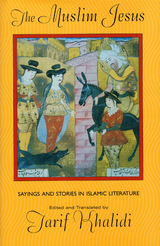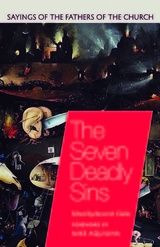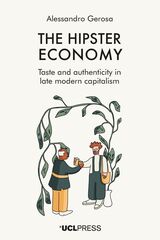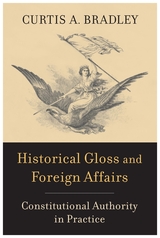
Exemplary wisdom from ancient Rome.
Valerius Maximus compiled his handbook of notable deeds and sayings during the reign of Tiberius (AD 14–37). The collection was admired in antiquity and has recently been attracting renewed scholarly attention. Yet to date there has been no modern English translation of Memorable Doings and Sayings. This work is now added to the Loeb Classical Library, in two volumes, a freshly edited Latin text facing D. R. Shackleton Bailey’s pleasing and authoritative translation.
Valerius arranges his instructive examples in short chapters, each focused on a particular virtue, vice, religious practice, or traditional custom—including Omens, Dreams, Anger, Cruelty, Bravery, Fidelity, Gratitude, Friendship, Parental Love. The moral undercurrent of this collection is readily apparent. But Valerius tells us that the book’s purpose is simply practical: he decided to select worthwhile material from famous writers so that people looking for illustrative examples might be spared the trouble of research. Whatever the author’s intention, his book is an interesting source of information on Roman attitudes toward religion and moral values in the first century.

Exemplary wisdom from ancient Rome.
Valerius Maximus compiled his handbook of notable deeds and sayings during the reign of Tiberius (AD 14–37). The collection was admired in antiquity and has recently been attracting renewed scholarly attention. Yet to date there has been no modern English translation of Memorable Doings and Sayings. This work is now added to the Loeb Classical Library, in two volumes, a freshly edited Latin text facing D. R. Shackleton Bailey’s pleasing and authoritative translation.
Valerius arranges his instructive examples in short chapters, each focused on a particular virtue, vice, religious practice, or traditional custom—including Omens, Dreams, Anger, Cruelty, Bravery, Fidelity, Gratitude, Friendship, Parental Love. The moral undercurrent of this collection is readily apparent. But Valerius tells us that the book’s purpose is simply practical: he decided to select worthwhile material from famous writers so that people looking for illustrative examples might be spared the trouble of research. Whatever the author’s intention, his book is an interesting source of information on Roman attitudes toward religion and moral values in the first century.

Eclectic essays on ethics, education, and much else besides.
Plutarch (Plutarchus), ca. AD 45–120, was born at Chaeronea in Boeotia in central Greece, studied philosophy at Athens, and, after coming to Rome as a teacher in philosophy, was given consular rank by the emperor Trajan and a procuratorship in Greece by Hadrian. He was married and the father of one daughter and four sons. He appears as a man of kindly character and independent thought, studious and learned.
Plutarch wrote on many subjects. Most popular have always been the forty-six Parallel Lives, biographies planned to be ethical examples in pairs (in each pair, one Greek figure and one similar Roman), though the last four lives are single. All are invaluable sources of our knowledge of the lives and characters of Greek and Roman statesmen, soldiers and orators. Plutarch’s many other varied extant works, about sixty in number, are known as Moralia or Moral Essays. They are of high literary value, besides being of great use to people interested in philosophy, ethics, and religion.
The Loeb Classical Library edition of the Moralia is in fifteen volumes, volume XIII having two parts. Volume XVI is a comprehensive Index.

This work presents in English translation the largest collection ever assembled of the sayings and stories of Jesus in Arabic Islamic literature. In doing so, it traces a tradition of love and reverence for Jesus that has characterized Islamic thought for more than a thousand years. An invaluable resource for the history of religions, the collection documents how one culture, that of Islam, assimilated the towering religious figure of another, that of Christianity. As such, it is a work of great significance for the understanding of both, and of profound implications for modern-day intersectarian relations and ecumenical dialogue.
Tarif Khalidi's introduction and commentaries place the sayings and stories in their historical context, showing how and why this "gospel" arose and the function it served within Muslim devotion. The Jesus that emerges here is a compelling figure of deep and life-giving spirituality. The sayings and stories, some 300 in number and arranged in chronological order, show us how the image of this Jesus evolved throughout a millennium of Islamic history.

Revolution! Sayings of Vladimir Lenin is a compilation of Lenin’s most famous sayings, taken from speeches, lectures, letters, and recorded conversations. Together, they show his views on topics ranging from democracy to terrorism, from religion to Stalin’s untrustworthiness, and from education to music. Accompanied by a range of striking images, including contemporary propaganda posters, photographs, portraits, illustrations, and Soviet art, these aphoristic proclamations offer an insight into the atmosphere of pre- and post-revolutionary Russia and the mind of one of the twentieth century’s most defining political figures.

Sacred Scripture did not neatly list the seven deadly sins, so where did this tradition come from? Unsurprisingly, it can be traced back to the Church Fathers. But were there eight or seven? In a sense, the answer is “both.” The tradition of the capital sins has a rich development in the patristic era, not only in the presentation of the list of vices but in the preaching and teaching of the early shepherds of the Church. So how do the capital sins spawn other vices in the soul? How does one cultivate the virtues that heal the soul from those vices? How are gluttony and lust related? Is sadness really a vice? How is vainglory different from pride? What role does almsgiving have in soothing the passion of anger? The Fathers of the Church answer these questions and more in this volume.
The capital vices are the gateway drugs to countless sins. The path of the book descends through the vices, culminating with their queen ruler, pride. The words of the Fathers will assist the reader in being more realistic about the attacks upon the soul. The text should also be edifying and medicinal. Since each chapter begins with vice and ends with virtue, one’s path through the chapters represents a sort of ascent out of vice and into the freedom of the virtues. The text gives special attention throughout to the thought of Augustine of Hippo, Evagrius of Pontus, John Cassian, Gregory the Great, and Maximus the Confessor.
READERS
Browse our collection.
PUBLISHERS
See BiblioVault's publisher services.
STUDENT SERVICES
Files for college accessibility offices.
UChicago Accessibility Resources
home | accessibility | search | about | contact us
BiblioVault ® 2001 - 2024
The University of Chicago Press









